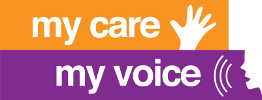- What is secondary care?
- Will my HIV clinic refer me on to other healthcare?
- Will my HIV doctor communicate with the other doctors I see?
- How long will I have to wait to see a doctor?
- Can migrants get secondary healthcare from the NHS?
‘Secondary care’ is a term used in the NHS to talk about health services in hospitals and clinics –from doctors and nurses who are specialists in certain types of healthcare. ‘Primary care’ on the other hand, refers to GPs, pharmacists and dentists who are usually the first (primary) point of contact. To get most secondary care services you will need to be referred from primary care.
Will my HIV clinic refer me on to other healthcare?
HIV clinics should have agreed care pathways with:1 
- Sexual health services
- Reproductive health and maternity services
- Management of other non-HIV health needs including Hepatitis, TB as well as heart, liver, kidney and brain health.
- Psychological support
- Drugs and alcohol services
- Community and voluntary sector (charity) services.
For referral to other specialised care, you will probably have to go to your GP.
[1] BHIVA Standards of Care – Standard 3 - Provision of outpatient treatment and care for HIV, and access to care for complex comorbidity. http://www.bhiva.org/standards-of-care-2012.aspx
Will my HIV doctor communicate with the other doctors I see?
When the HIV clinic decides you need care from another part of the healthcare system, it will either refer you directly or ask you to go to your GP, who will then refer you on.1  (For information on how your personal information will be shared, see Confidentiality and Disclosure).
(For information on how your personal information will be shared, see Confidentiality and Disclosure).
If you are seeing different doctors, each should know what the other is doing in terms of your treatment and care. Communication between different clinics should be efficient and timely. They should have plans in place to make sure that this happens.
The ‘care pathways’ (see ‘Will my HIV clinic refer me to other healthcare’, above) which your doctors are using will be made public. You should be able to find them if you want to see how different parts of the healthcare system are working together.
If you have concerns that this is not working in your area, talk to someone at your HIV clinic, or your GP to find out more. You could also ask for help from your local HIV voluntary organisation. Your local Healthwatch organisation should also be able to show you how to find out more about care pathways in your area.
[1] BHIVA Standards of Care – Standard 3 - Provision of outpatient treatment and care for HIV, and access to care for complex comorbidity. http://www.bhiva.org/standards-of-care-2012.aspx
How long will I have to wait to see a doctor?
There are some waiting time limits which the NHS promises to keep.1  There are also commitments to prompt access to specific health services in other Guidelines and Standards.2
There are also commitments to prompt access to specific health services in other Guidelines and Standards.2 
We don’t list all the waiting time pledges here, but some which may be of particular interest are:
- Appointment with a cancer specialist within 2 weeks of referral1

- For non-urgent psychological support needs, access to an appropriate service within 3 months. (Where there is a risk of harm someone should be seen immediately, including outside of business hours)2

- If you need to go into hospital as an inpatient (staying in a hospital ward) for your HIV care you should be admitted within 24 hours of referral.3

The Handbook to the NHS Constitution also states that it is best practice to offer appointments at a sexual health clinic within 48 hours.1 
[1] Pledge in Handbook to NHS Constitution, March 2013. http://www.nhs.uk/choiceintheNHS/Rightsandpledges/NHSConstitution/Pages/Overview.aspx
[2] BPS/BHIVA/MEDFASH. Standards for Psychological Support for People Living with HIV http://www.bhiva.org/StandardsForPsychologicalSupport.aspx
[3] BHIVA Standards of Care – Standard 6 – Psychological care. http://www.bhiva.org/standards-of-care-2012.aspx.
Can migrants get secondary healthcare from the NHS?
HIV care is freely available to everyone living in England, regardless of their immigration or residency status.1  But some migrants might be asked to pay for the other hospital care they need. There are many exemptions so there are only a small number of migrants who are likely to be affected.2
But some migrants might be asked to pay for the other hospital care they need. There are many exemptions so there are only a small number of migrants who are likely to be affected.2  Those affected include:
Those affected include:
- refused asylum seekers who are not on Section 95 and Section 4 support
- undocumented migrants (people without papers)
- short-term visitors and tourists
Even if you are charged for using the NHS, you should always get immediately necessary or urgent care without delay. This means that if your condition is life threatening or could become life threatening without help, the hospital should treat first and charge later – even if you are not currently able to pay the bill. You will then receive a bill later.3 
For more information see NAT's factsheet, Who Has to Pay?
[1] The National Health Service (Charges to Overseas Visitors) Regulations 2012. https://www.gov.uk/government/publications/hiv-treatment-for-overseas-visitors-in-england-from-1-october-2012
[2] The National Health Service (Charges to Overseas Visitors) Regulations 2011. http://www.legislation.gov.uk/uksi/2011/1556/made
[3] Guidance on Implementing the Overseas Visitors Hospital Charging Regulations 2011 https://www.gov.uk/government/publications/guidance-on-overseas-visitors-hospital-charging-regulations








